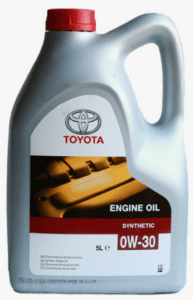Camry engine oil

Camry engine oil – Toyota Camry Maintenance 2022
Toyota Camry Maintenance
The Toyota Camry requires routine maintenance to keep it running smoothly and to ensure reliability. Toyota recommends following a maintenance schedule based on mileage and/or time intervals, whichever comes first. Here’s an overview of the key maintenance tasks, their frequency, and what’s involved for a 2022 Toyota Camry, including hybrid and non-hybrid models.
1. Camry Engine Oil and Filter Change
- Interval: Every 5,000–10,000 miles or 6–12 months, depending on driving conditions and oil type.
- Type: Use synthetic SAE 0W-16 or SAE 0W-20 oil (confirm specific grade in the manual).
- Note: Regular oil changes are critical for engine longevity, especially if you frequently drive in stop-and-go traffic or harsh conditions.
2. Tire Rotation and Inspection
- Interval: Every 5,000 miles or at each oil change.
- Note: Rotating tires helps ensure even wear and prolongs tire life. Also, check for proper tire inflation, alignment, and any signs of abnormal wear.
3. Brake System Inspection
- Interval: Every 5,000–10,000 miles.
- Tasks: Inspect brake pads, rotors, and brake fluid. Hybrid models generally experience less brake wear due to regenerative braking, but inspections are still essential.
4. Cabin Air Filter Replacement
- Interval: Every 15,000–30,000 miles, depending on air quality and driving conditions.
- Purpose: Keeps the air inside the cabin clean and reduces allergens and dust.
5. Engine Air Filter Replacement
- Interval: Every 30,000 miles.
- Purpose: Ensures proper air intake for the engine, which helps maintain fuel efficiency and performance.
6. Coolant Level and Fluid Check
- Interval: Every 30,000 miles or as specified in the owner’s manual.
- Note: Toyota uses long-life coolant, but it should still be checked for levels, quality, and possible leaks. Hybrid models may have a separate cooling system for the battery.
7. Brake Fluid Replacement
- Interval: Every 36,000 miles or 3 years.
- Note: Brake fluid absorbs moisture over time, which can affect braking performance. Regular replacement is essential for safety.
8. Spark Plug Replacement
- Interval: Every 120,000 miles (usually required for non-hybrid Camrys with gasoline engines).
- Note: Worn spark plugs can lead to misfires, reduced fuel economy, and performance issues.
9. Transmission Fluid Check and Replacement
- Interval: Generally, Toyota recommends inspecting transmission fluid every 30,000–60,000 miles, but replacement may not be necessary until 100,000 miles. Follow the owner’s manual for specific guidance.
- Note: Maintaining transmission fluid helps keep shifting smooth and prevents wear.
10. Hybrid System Maintenance (for Camry Hybrid)
- Hybrid Battery Cooling Fan: Inspect and clean the cooling fan for the hybrid battery if needed, especially if driving in dusty or high-temperature environments.
- Hybrid Coolant Check: Some hybrid components use a separate coolant system. Check and replace hybrid coolant as per the owner’s manual.
11. Additional Inspections
- Suspension and Steering: Inspect every 30,000 miles or during tire rotations.
- Exhaust System: Check for leaks, rust, and damage every 30,000 miles.
- Drive Belt Inspection: Inspect drive belts for wear or cracks every 60,000 miles.
Recommended Maintenance Schedule Summary:
| Mileage (or Months) | Tasks |
|---|---|
| Every 5,000 miles (6 months) | Oil change, tire rotation, brake inspection |
| Every 15,000 miles (12 months) | Cabin air filter replacement |
| Every 30,000 miles (24 months) | Engine air filter replacement, coolant check, brake inspection |
| Every 36,000 miles (3 years) | Brake fluid replacement |
| Every 60,000 miles | Transmission fluid inspection, drive belt inspection |
| Every 120,000 miles | Spark plug replacement, transmission fluid change if required |
12. General Tips for Maintaining Your Toyota Camry
- Use Genuine Toyota Parts: Toyota OEM parts are designed specifically for your Camry and can improve reliability.
- Follow the Service Manual: The 2022 Camry’s service manual provides tailored advice for each component and interval.
- Monitor Warning Lights: Address any warning lights (like check engine or brake lights) promptly to avoid major repairs.
- Regular Cleaning and Waxing: This protects the paint and helps prevent rust, especially in areas with road salt in winter.
This maintenance schedule will help keep your 2022 Toyota Camry running efficiently and reliably, and following Toyota’s recommendations can also improve resale value. Always consult your owner’s manual or a Toyota service center for specifics, as some items may vary slightly depending on the trim or driving conditions.

